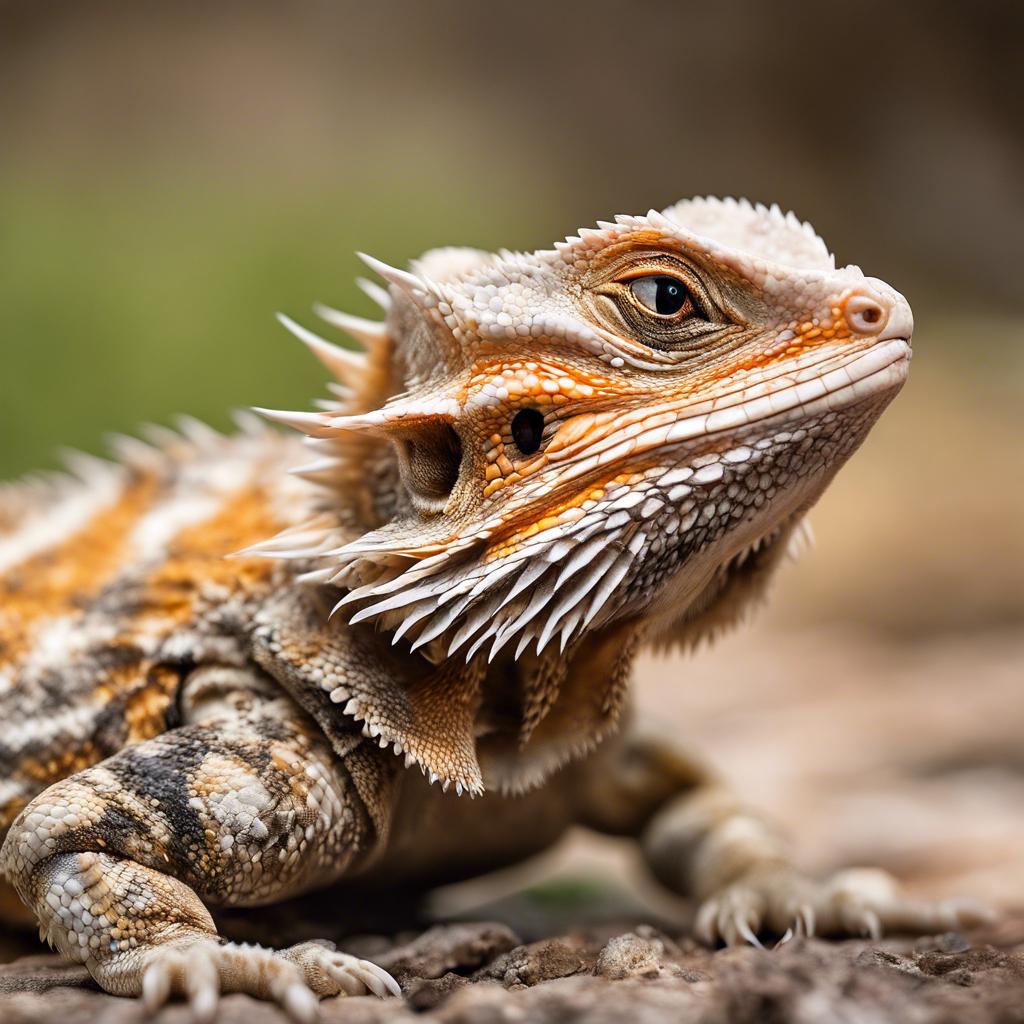Bearded dragons have become increasingly popular as pets in recent years. These reptiles are known for their unique appearance and docile nature, making them a favorite among reptile enthusiasts. However, like any pet, bearded dragons require proper care and attention to ensure their health and well-being. This includes providing critical care when they are sick or injured. In this article, we will explore the importance of critical care for bearded dragons and provide information on how to properly care for them in times of illness or injury.
Key Takeaways
- Bearded dragons require critical care to maintain their health as pets.
- Recognizing signs of illness and distress in your pet is crucial for their well-being.
- Emergency care and first aid steps should be taken in case of injury or illness.
- Proper nutrition, medication, and temperature and lighting requirements are essential for bearded dragon health.
- Follow-up care and monitoring are important for ensuring your pet's recovery and progress.
Signs of Illness in Bearded Dragons
It is important for bearded dragon owners to be able to recognize the signs of illness in their pets. Common symptoms of illness in bearded dragons include loss of appetite, weight loss, lethargy, diarrhea, abnormal feces, respiratory distress, and skin abnormalities. If you notice any of these symptoms in your bearded dragon, it is important to seek veterinary care immediately.
In addition to these common symptoms, it is also important to be able to recognize signs of distress in your pet. Bearded dragons may exhibit signs of distress such as gaping their mouths, puffing up their beard, hissing, or displaying aggressive behavior. These signs may indicate that your bearded dragon is feeling threatened or stressed and may require immediate attention.
Emergency Care for Bearded Dragons
In case of an emergency with your bearded dragon, it is important to know what steps to take to ensure their safety and well-being. The first step is to assess the situation and determine if your pet requires immediate veterinary care. If your bearded dragon is experiencing severe respiratory distress, bleeding, or trauma, it is important to seek veterinary care right away.
While waiting for veterinary care, there are some first aid measures you can take to help stabilize your bearded dragon. For example, if your pet is bleeding, you can apply gentle pressure to the wound with a clean cloth or gauze to help stop the bleeding. If your bearded dragon is experiencing respiratory distress, you can try gently misting their enclosure with water to increase humidity and provide some relief.
Nutritional Support for Bearded Dragons
Proper diet and nutrition are essential for the health and well-being of bearded dragons. In times of illness or injury, it is important to provide your pet with the necessary nutrients to support their recovery. This may involve adjusting their diet to include more easily digestible foods or providing supplements to ensure they are getting all the necessary vitamins and minerals.
When feeding a sick or injured bearded dragon, it is important to offer small, frequent meals to prevent further stress on their digestive system. You may also need to offer softer foods or purees if your pet is having difficulty eating. It is important to consult with a veterinarian or reptile specialist to determine the best diet for your bearded dragon's specific needs.
Medications and Treatments for Bearded Dragons
There are several types of medications and treatments commonly used for bearded dragons. These may include antibiotics, antiparasitic medications, pain relievers, and topical treatments for skin conditions. It is important to follow dosage and administration guidelines carefully when administering medications to your bearded dragon.
When administering medication or treatment to a bearded dragon, it is important to handle them safely and securely. Bearded dragons can become stressed or agitated when being handled, so it is important to use proper techniques for restraint. This may involve using a towel or cloth to gently secure your pet while administering medication or treatment.
Temperature and Lighting Requirements for Bearded Dragons

Proper temperature and lighting are crucial for the health and well-being of bearded dragons. These reptiles require a basking spot with temperatures ranging from 95-105 degrees Fahrenheit (35-40 degrees Celsius) during the day, and a cooler area with temperatures around 80 degrees Fahrenheit (27 degrees Celsius) at night. It is important to provide a temperature gradient within their enclosure to allow them to regulate their body temperature.
In addition to proper temperatures, bearded dragons also require UVB lighting to help them metabolize calcium and prevent metabolic bone disease. UVB lighting should be provided for 10-12 hours a day and should be replaced every 6-12 months, as the UVB output diminishes over time.
Handling and Restraint of Bearded Dragons
When handling a bearded dragon, it is important to use proper techniques to ensure their safety and minimize stress. Bearded dragons can become easily stressed or agitated when being handled, so it is important to approach them calmly and confidently. It is also important to support their body properly and avoid squeezing or applying excessive pressure.
When administering medication or treatment to a bearded dragon, it may be necessary to restrain them gently to prevent injury. This can be done by using a towel or cloth to secure their body while leaving their head exposed. It is important to be gentle and avoid applying excessive force or pressure.
Common Health Issues in Bearded Dragons
Bearded dragons are prone to several common health issues that owners should be aware of. These include metabolic bone disease, respiratory infections, parasites, impaction, and shedding problems. It is important to take preventive measures to minimize the risk of these conditions and seek veterinary care if any symptoms or issues arise.
Prevention strategies for common health issues in bearded dragons include providing proper nutrition, maintaining appropriate temperatures and lighting, keeping their enclosure clean, and providing regular veterinary check-ups. If your bearded dragon does develop a health issue, it is important to seek veterinary care promptly to ensure proper diagnosis and treatment.
Follow-up Care for Bearded Dragons
After your bearded dragon has received critical care for an illness or injury, it is important to provide follow-up care to monitor their recovery and progress. This may involve regular veterinary check-ups, adjustments to their diet or environment, and ongoing medication or treatment. It is important to follow the recommendations of your veterinarian and provide any necessary follow-up care to ensure your pet's continued health and well-being.
Monitoring your bearded dragon's recovery and progress may involve observing their behavior, appetite, and overall appearance. It is important to note any changes or abnormalities and report them to your veterinarian. Regular check-ups and communication with your veterinarian will help ensure that your bearded dragon receives the necessary care and support during their recovery.
In conclusion, providing critical care for bearded dragons is essential for their health and well-being. It is important for owners to be able to recognize the signs of illness in their pets and take appropriate action when necessary. This may involve seeking veterinary care, providing first aid measures, adjusting their diet or environment, administering medications or treatments, and providing follow-up care. By following these guidelines and working closely with a veterinarian, you can ensure that your bearded dragon receives the best possible care during times of illness or injury.
For further information on bearded dragon care and health, there are several resources available. Reptile-specific veterinary clinics or specialists can provide expert advice and guidance on caring for bearded dragons. Additionally, there are many reputable websites, books, and online forums dedicated to reptile care that can provide valuable information on critical care for bearded dragons. By utilizing these resources and staying informed, you can provide the best possible care for your bearded dragon and ensure their long-term health and well-being.
If you're looking for information on critical care for bearded dragons, you might find this article on Reptile Wizard's blog helpful. It discusses the topic of stress in bearded dragons and whether they can die from it. Understanding the signs and causes of stress in your pet reptile is crucial for their well-being. To learn more about this important topic, check out the article here.
FAQs
What is critical care for bearded dragons?
Critical care for bearded dragons refers to the medical treatment and support provided to a bearded dragon that is in a critical condition due to illness or injury.
What are the common health issues that require critical care for bearded dragons?
Bearded dragons can suffer from a range of health issues that may require critical care, including respiratory infections, metabolic bone disease, impaction, parasites, and injuries.
What are the signs that a bearded dragon needs critical care?
Signs that a bearded dragon may need critical care include lethargy, loss of appetite, weight loss, difficulty breathing, abnormal behavior, and visible injuries.
What is involved in critical care for bearded dragons?
Critical care for bearded dragons may involve a range of treatments, including fluid therapy, medication, nutritional support, wound care, and surgery if necessary.
Can critical care for bearded dragons be done at home?
Some aspects of critical care for bearded dragons can be done at home, such as administering medication and providing nutritional support. However, it is important to consult with a veterinarian for proper diagnosis and treatment.
How can I prevent my bearded dragon from needing critical care?
To prevent your bearded dragon from needing critical care, it is important to provide proper nutrition, maintain a clean and appropriate environment, and seek veterinary care at the first sign of illness or injury. Regular check-ups with a veterinarian can also help detect and prevent health issues.

